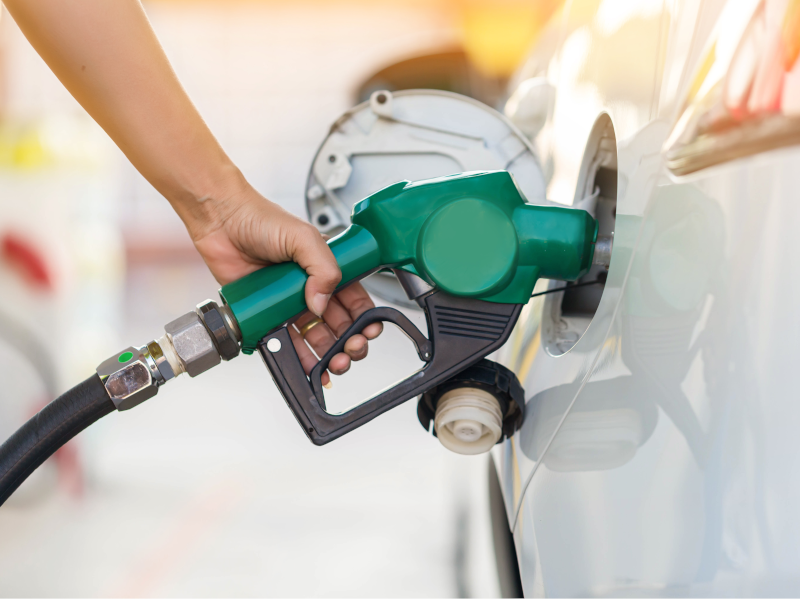E10 petrol is lower-carbon, mixture of renewable ethanol (10%) and petrol made from materials including low-grade grains, sugars and waste food. The current E5 petrol contains no more than 5% renewable ethanol.
At the filling stations, a circular E10 label will be displayed on both the petrol dispenser and nozzles, so you can easily identify it.
